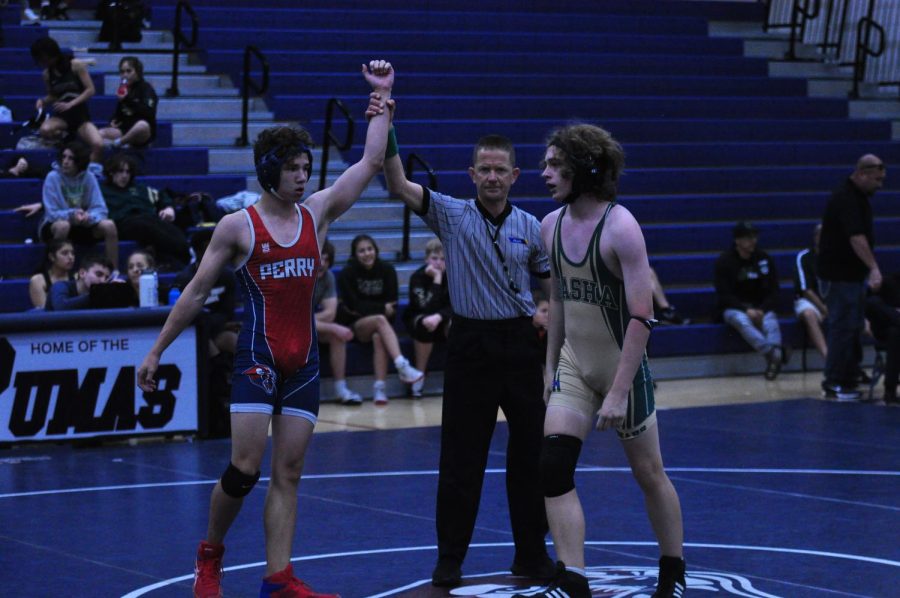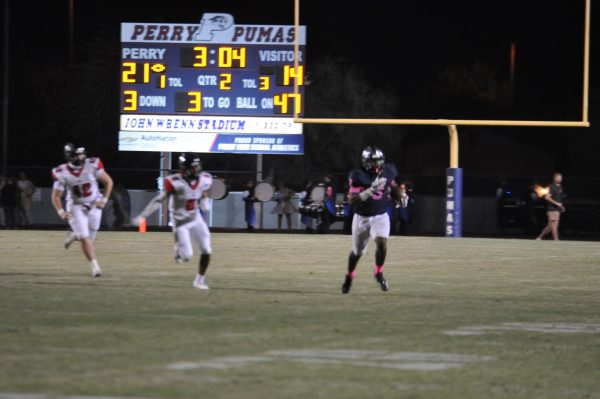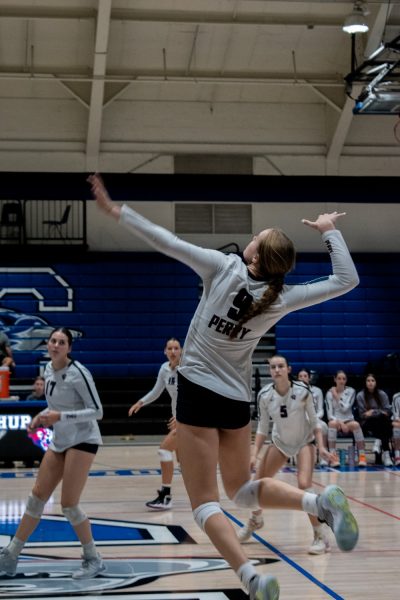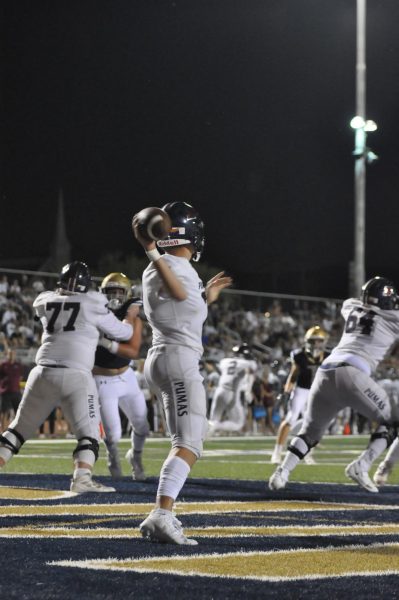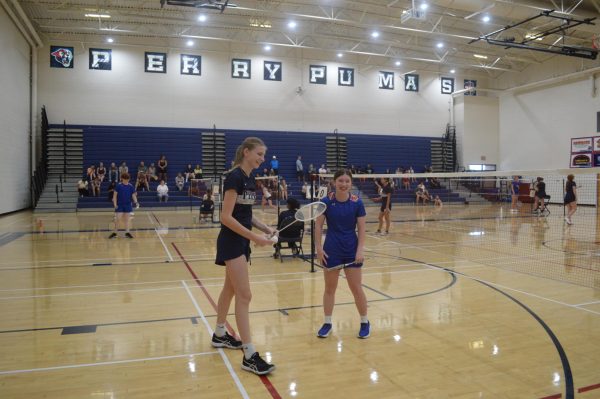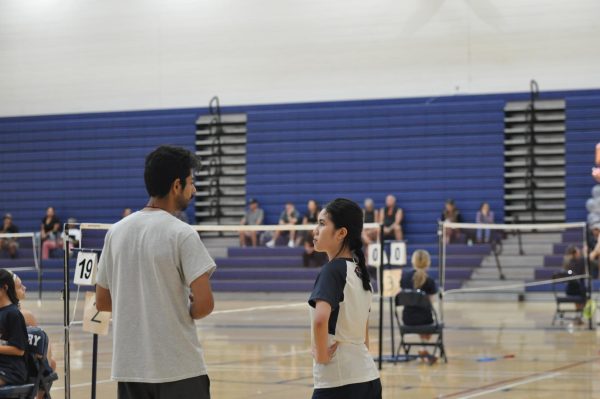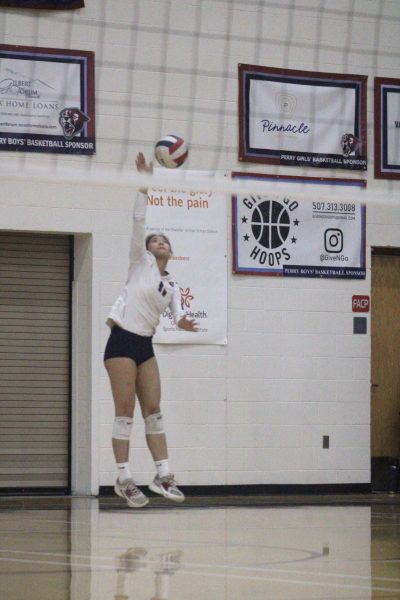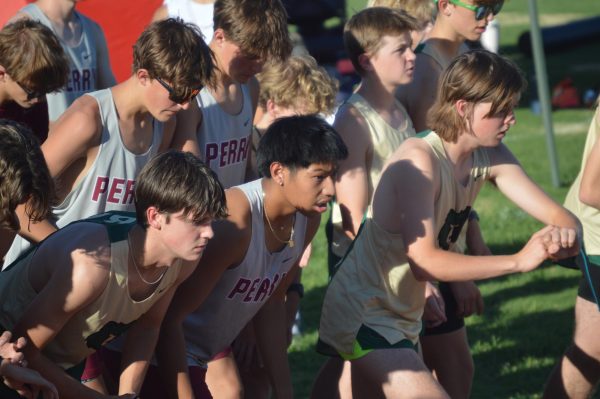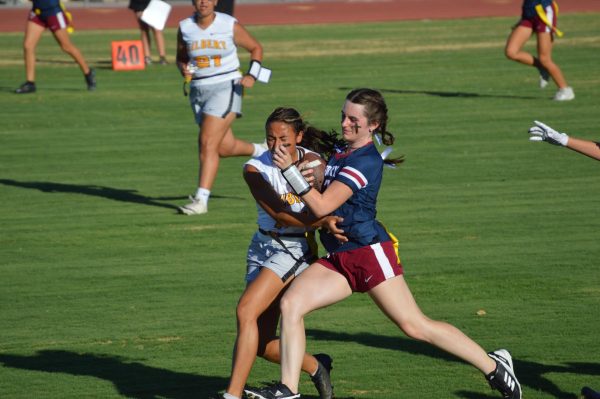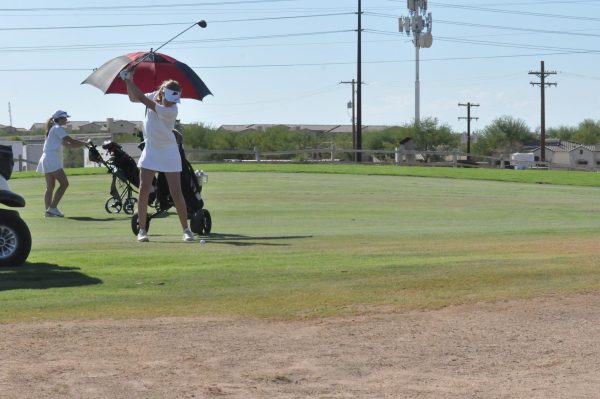Getting in Mental Warrior Shape
Junior Nathan Groenwald after his triumphant victory over a Basha competitor.
Many sports experts claim, “every sport is 50% physical and 50% mental.” With athletes investing large amounts of time and money into honing their physical abilities, the mental half of the athletic training is often pushed to the side. The development of said mental strength is the guiding principle of the Mental Warriors Club.
Club sponsor Damien Tippett says the club is for “anyone that does any type of performance to improve their mental game.” The club has a wide range of participants from baseball players to ballet dancers. The consensus among students is that the lessons taught during the club meetings, whether it be meditation or keeping your cool. Senior baseball player Jeremy Sprague highlights that the club “slows down the game, so the game doesn’t overwhelm me.”
Taking a second to think rather than immediately acting is also an important part of what the club teaches. Another student, junior Isaac Brown, says that he now is “more calm in tough situations and more awake during the day.” Overall, this level of mental preparation provided by the club seems to be taking hold amongst the students as the general reaction has been nothing but optimistic regarding the lessons they have learned while attending meetings.
Tippett said he wanted to start the club because, especially during the Covid time period, he noticed, “The mental health of us as a society, let alone teenage athletes, needs support.” His goal was to help with this problem. He noticed in his time as both a teacher and coach that “Seeing the pressures students are under to get that scholarship. We need the chance to hit the reset button and just focus.”
Through the club meetings and the advice Tippett shares with them, he hopes to advise the students on better ways to handle not only the stress of sports but the stress of life. However, as Tippett also cautions, “It’s something you have to practice every single day.” The preparation for stressful situations is left up to the students to practice in sports, school, or whatever life may throw at them.
Despite the somewhat open-ended approach to enforcing these principles, the reception seems to continue to garner positive results in the eyes of the students. Tippett asked the question, “How much money have you invested in your private mental training?” The answers from students to this question seem to be being taken to heart. Further, students in the club are encouraging others to join, with Sprague saying, “It can’t hurt you, and it will benefit you whether you do sports or not.” With such positive reception among the students, the Mental Warriors Club has taken a firm step in the direction of better mental health for student-athletes on campus.
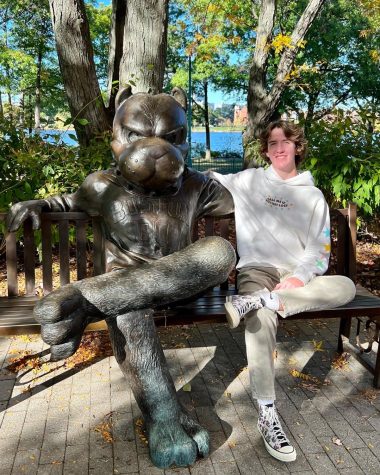
Taylor is a senior at Perry high school. This is his second year on the Precedent staff. Taylor likes playing Fortnite with Wyatt, collecting vinyls, and...

